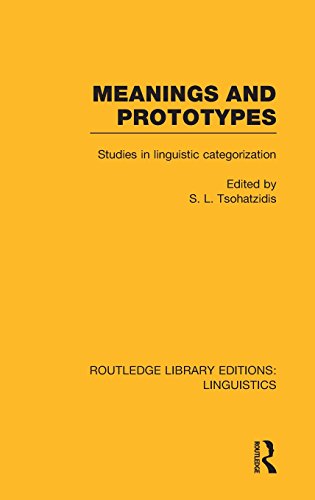

Most ebook files are in PDF format, so you can easily read them using various software such as Foxit Reader or directly on the Google Chrome browser.
Some ebook files are released by publishers in other formats such as .awz, .mobi, .epub, .fb2, etc. You may need to install specific software to read these formats on mobile/PC, such as Calibre.
Please read the tutorial at this link. https://ebooknice.com/page/post?id=faq
We offer FREE conversion to the popular formats you request; however, this may take some time. Therefore, right after payment, please email us, and we will try to provide the service as quickly as possible.
For some exceptional file formats or broken links (if any), please refrain from opening any disputes. Instead, email us first, and we will try to assist within a maximum of 6 hours.
EbookNice Team

Status:
Available4.5
17 reviewsThere are fewer distinctions in any language than there are distinct things in the universe. If, therefore, languages are ways of representing the universe, a primary function of their elements must be to allow the much more varied kinds of elements out of which the universe is made to be categorized in specific ways. A prototype approach to linguistic categories is a particular way of answering the question of how this categorization operates. It involves two claims. First, that linguistic categorization exploits principles that are not specific to language but characterize most, if not all, processes of cognition. Secondly, that a basic principle by which cognitive and linguistic categories are organized is the prototype principle, which assigns elements to a category not because they exemplify properties that are absolutely required of each one of its members, but because they exhibit, in varying degrees, certain types of similarity with a particular category member which has been established as the best example (or: prototype) of its kind.
The development of the prototype approach into a satisfactory body of theory obviously requires both that its empirical base be enriched, and that its conceptual foundations be clarified. These are the areas where this volume, in its 26 essays, makes original contributions. The first two parts contain discussions in which various kinds of linguistic phenomena are analysed in ways that make essential use of prototype notions. The last two parts contain discussions in which prototype notions themselves become the object, rather than the instrument, of analytical scrutiny.